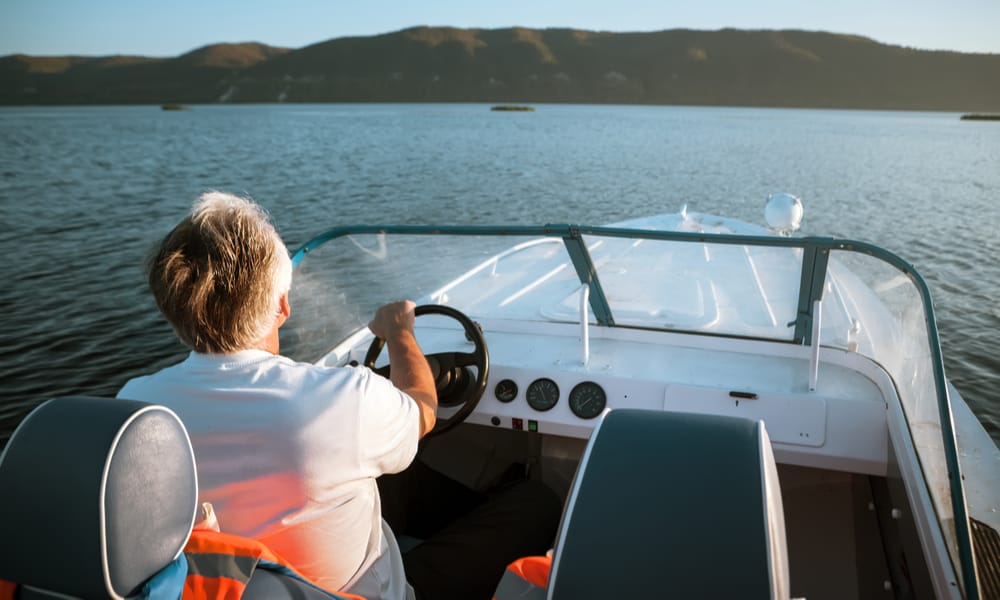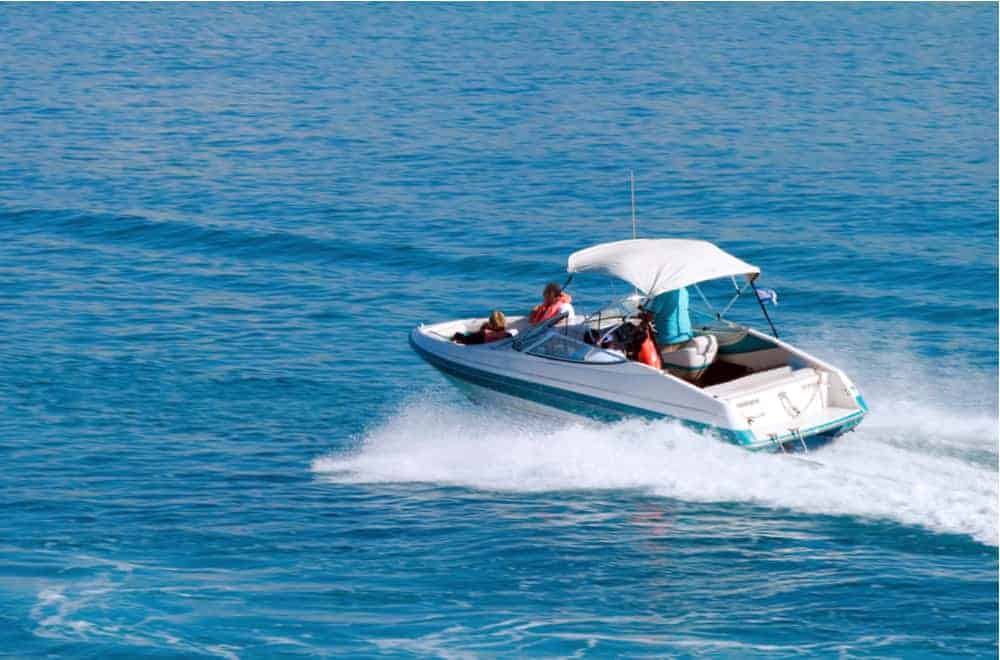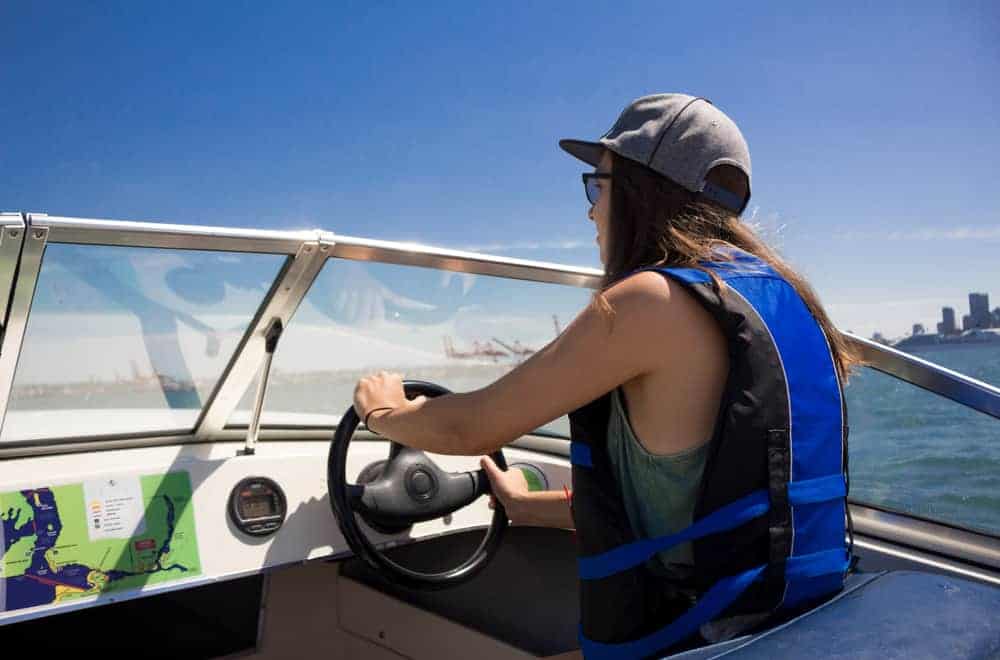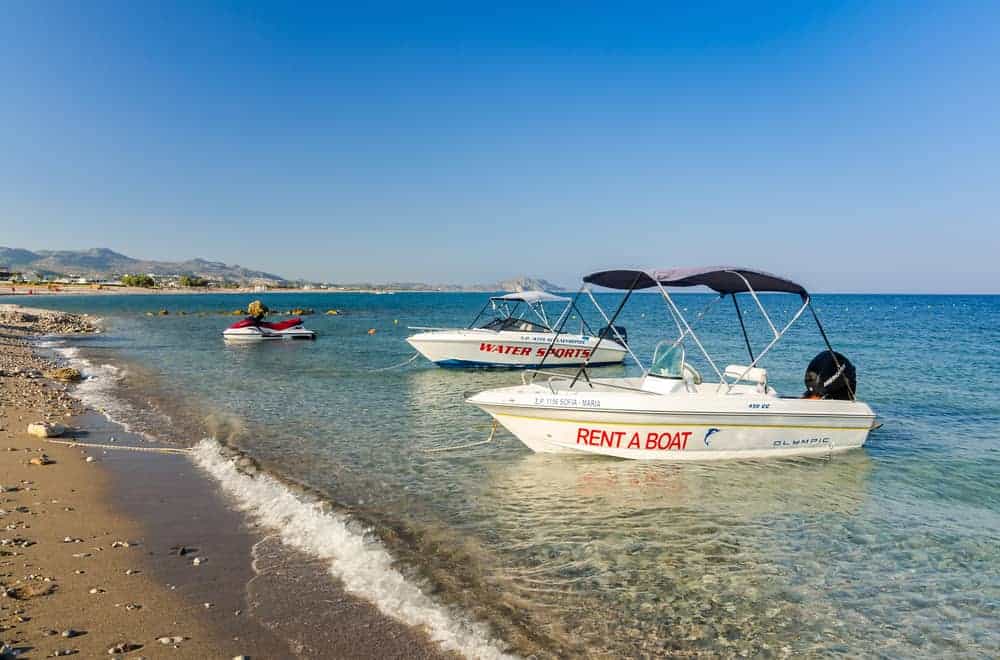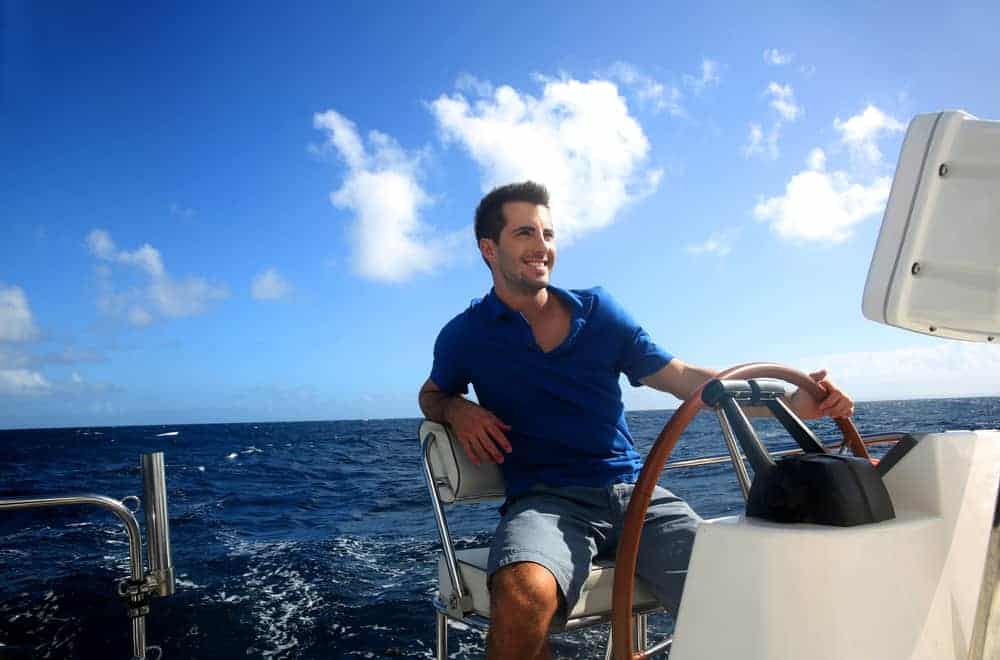Are you planning to drive a boat for the first time?
Boating is one of the most exhilarating outdoor activities, and if you get a chance to do it, you should definitely use it.
But before you hop onto any water-bound vessel, you might be wondering: Do I need a license to drive a boat?
Well, you have come to the right place! In this article, I explain everything you need to know about getting a license to drive a boat. As you will find out, the requirements vary from state to state.
So, without further ado, let’s find out what you need to drive a boat.
Do You Need A License To Drive A Boat?
1. Check the boater requirements in your state
Whether or not you need a license to drive a boat depends on your state laws. Some states have age restrictions, requiring boaters of a certain age to acquire a boating safety certificate.
In most, before you drive a boat for the first time, you need to take a boating safety and education course and obtain a certificate that qualifies as a boat license.
Each state has varying boating safety and education course and certification requirements. A good resource to check your state’s specific laws and requirements are the National Association of Boating Law Administrators (NASBLA). Their website lists the boating education requirements for each state.
Aside from the NASBLA website, you can also check your state’s website under the transportation of natural resources page. Here, you should access state-specific information on the training requirements to get a license to drive a boat.
Some states, such as Arizona and Alaska, do not require you to take a basic boating course or obtain a license to drive a boat. You can hop onto your boat and drive off without worrying about coast guard authorities stopping you.
In many other states, boaters must take a safety course and pass the corresponding exam before obtaining a boating card or license. If this is a requirement in your state, you should comply with it to avoid running afoul with coast guard authorities for driving a boat without a license.
2. Age limits are applicable
In states where you need a license to drive a boat, age limits generally outline who needs to take a boating course and obtain a license.
Each state has its age requirements for the basic boating course and licensure. You should check with your state whether you are exempt or you need to obtain a license to operate a boat.
For example, anyone operating a boat in Colorado should be aged 16 years or more. Those aged between 14 and 15 years must take a boating course and obtain a boating card before operating a boat. After 16, taking a boating course and license is not compulsory; you can drive a boat without a license.
In Connecticut, anyone who owns a boat or water-bound vessel must have a license to operate the vessel. Tourists and anyone who is just renting a boat for a while do not need a license to drive a boat in the state.
In California, it used to be that only those convicted of a boating violation were required to complete a boating safety course. Starting 2018, anyone who owns and operates a boat should complete a boating safety examination and obtain a state-approved California Boater Card.
Anyone born on or before January 1, 1989, should complete a NASBLA-approved boating safety course in Kansas. Generally, anyone under 21 years who wants to operate a boat needs to pass the boating course and obtain a license.
As you can see, the requirements and age limits for a boating license vary widely from state to state. Not everyone needs a license to drive a boat. If you aren’t sure, find out from your local transport or natural resources department the requirements for operating a boat in your area.
3. Boat licenses can be used in different states
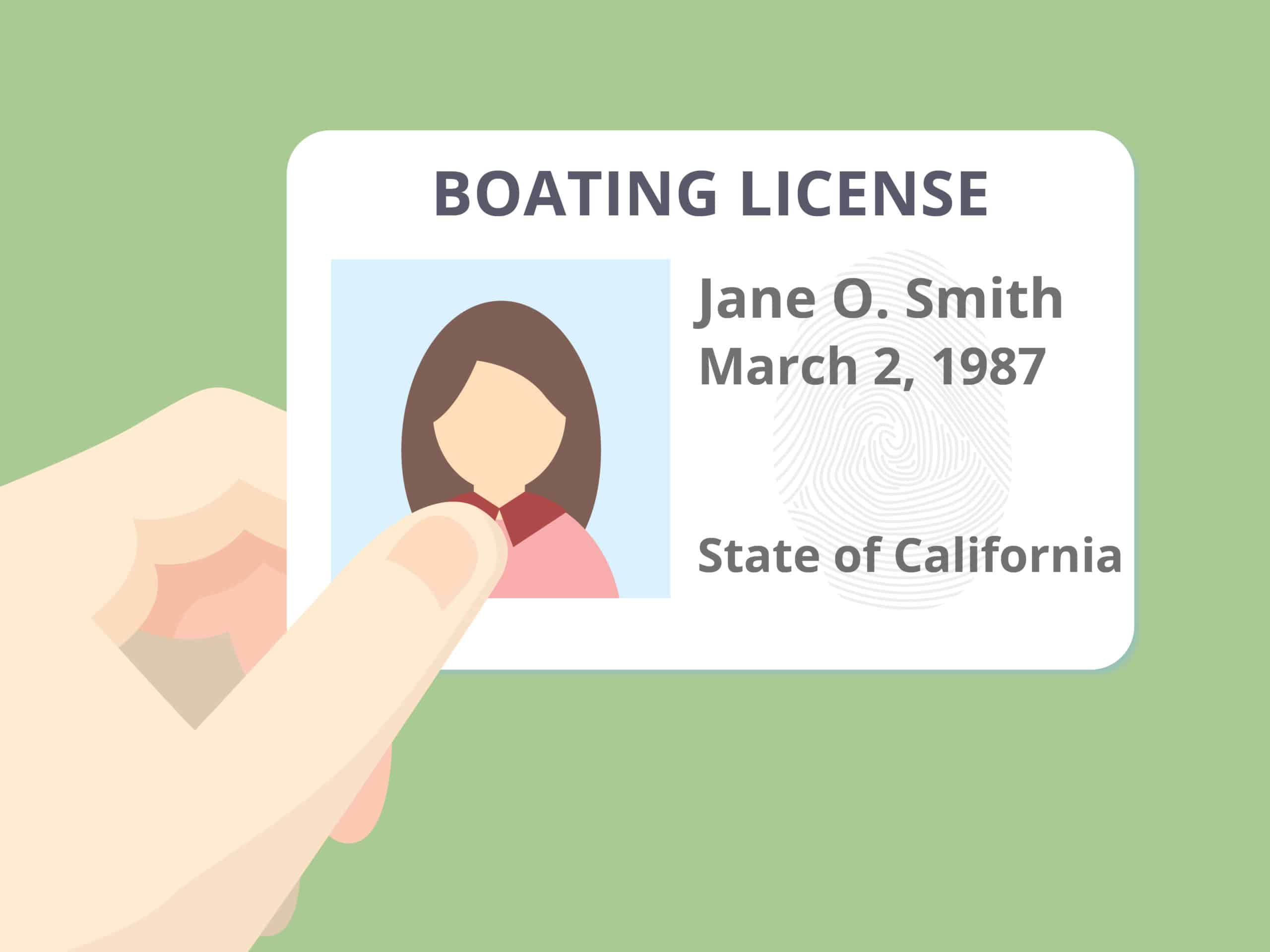
A big advantage of getting a boat license in your state is that you can use this same license to operate a boat anywhere else.
Most states accept a boater education card or license issued in another state and will allow you to operate your vessel legally without interstate penalties.
As long as you take a NASBLA-approved education and safety course and obtain a license upon completion, you are recognized as a licensed boater everywhere you go.
Having a valid boating license in most states is super convenient and will save you a lot of trouble. For example, if you plan to explore the waters of another state, you can do it without worrying about legal penalties.
4. Enroll in a boating course
If your state requires you to have a license to drive a boat, you must enroll in a boating education course first before qualifying for the license.
States don’t typically administer these courses. Instead, you can take the course through a third party such as BOATsmart. Third-party course administrators charge a fee, but some may offer free courses. Check with your state to find qualified third-party companies that administer the boating license course.
Most boating license courses are done online and usually take 3 to 8 hours. The course is divided into various chapters, allowing you to stretch it over a few days instead of attempting to complete it in one sitting.
There is an exam you must complete after each chapter before moving on to the next one. The whole idea behind this course is not to make it difficult for you to obtain a license or to fail. It is in your best interest to go through each section carefully to understand all aspects of boating.
You will learn everything from nautical terminology, navigation, maritime laws in your state, watersport techniques, dealing with marine emergencies, and so much more.
At the end of the course, you can take the main exam, after which you will receive your boating license. Print out your license and take it with you whenever you go out boating.
5. Do you need a boat license to drive a rented boat?
You don’t need to own a boat to hit the water and go boating; many people opt to rent one.
If you are thinking of renting a boat, you might be wondering whether you need a license to operate the vessel. The answer is: it depends.
In some states, tourists and visitors who rent watercraft do not need a license to drive the vessel. This is an important consideration, especially if you come from a state where a boating license isn’t required, and you visit a state where you need one.
Anyone who operates a boat, whether theirs or rented, needs a boating license in other states.
If you travel to another state and wish to rent a boat, find out whether you need a license. It can be a big inconvenience if you plan to rent out a boat only to find out you need a license when you do not have one.
The good news is that most states recognize boating licenses or boat cards from other states. This means that if you already have a boating license in your state, you can confidently rent a boat in another state and use your license there.
6. Exceptions to needing a license to drive a boat
Generally, a license is mandatory when operating a boat in most states. But there are a few exceptions where you don’t need a boating license. You might not need a boating license if you are:
- A master of a vessel already licensed by the U.S. Coast Guard
- Driving the boat on a private pond or lake
- Accompanied by a person who is at least 18 years old. This person should have a boating card and be responsible for the safe operation of the boat
- Accompanied by a person at least 18 years old but exempt from the boating license requirements. This person should, however, be responsible for the safe operation of the boat
- A non-resident who has completed the boating education requirements in your state
- Operating a boat within 90 days of completing a NASBLA approved course. You also need an ID and course completion certificate showing your name, date of birth and the date you completed the course.
Summary: Do you need a license to drive a boat?
Hitting the water on a boat is an exciting experience. But, you should always prioritize your safety and that of anyone else on the vessel. Obtaining boating education and acquiring a license is a good place to start.
Always follow state regulations on the operation of a boat. In states that require you to have a license, be sure to get one before operating a boat to avoid potentially costly legal problems.
